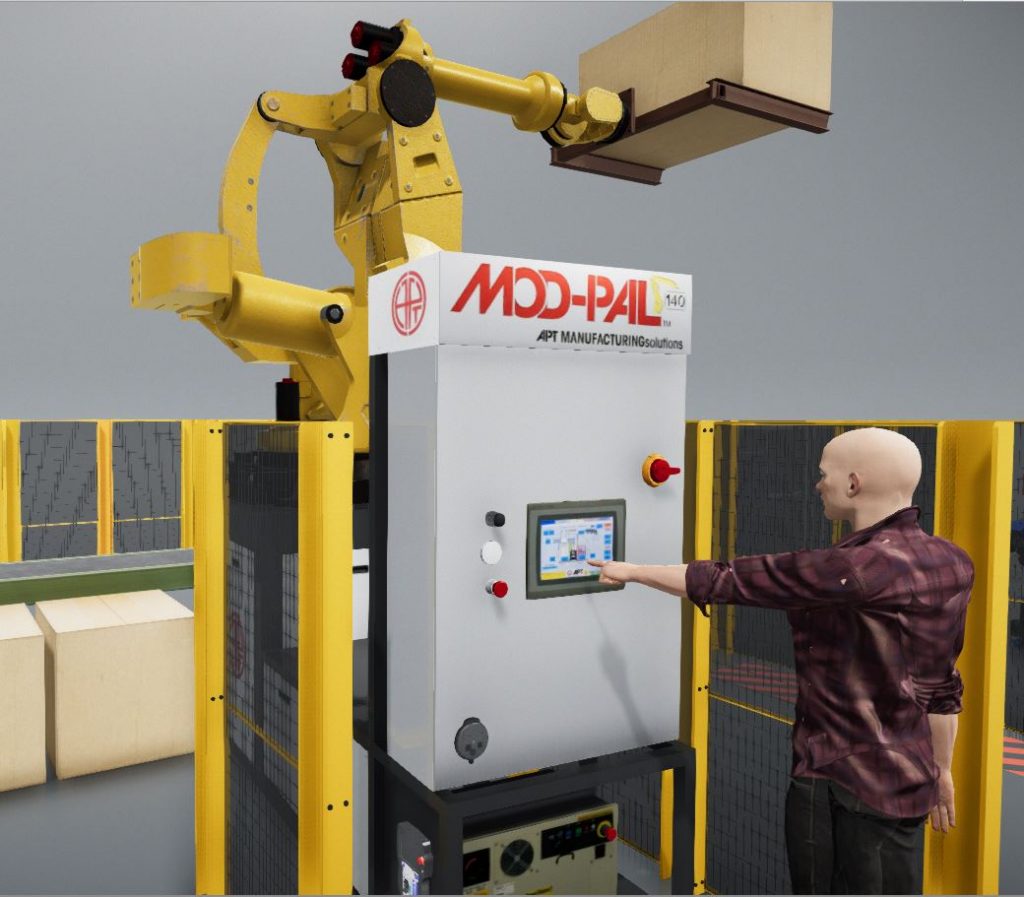Virtual reality might be the next big certification tool in robotics manufacturing.
The Advanced Robotics for Manufacturing Institute announced today that it would launch a prototype of virtual reality credential assessments for robotics manufacturing. That means the ARM Institute and its partners will offer incumbent manufacturing workers the chance to formally certify their on-the-job experience via VR.
The new initiative will continue the current work of the institute in providing resources for robotics manufacturing skills education in an effort to promote economic and workforce development. ARM’s partners in the initiative are Lake Forest, California-based VR software company SimInsights, Hicksville, Ohio-based APT Manufacturing Solutions and New York City-based data-driven learning system company IBL Education.
The prototype aims to reduce inefficiencies in the current certification process and afford more employees a chance to officially add new skills to their resume. It comes as the need for advanced robotics manufacturing is increasing, in what’s being called the Fourth Industrial Revolution, or Industry 4.0. Providing financial support for the project is the Office of the Secretary of Defense Manufacturing Technology Program. While the platform is still in its early stages, it will be available to any company or institution with an Oculus Quest 2.
“Currently, in the field of robotics, there are very few credentials that people can earn,” Linda Wood, the senior certification manager for the ARM Institute, told Technical.ly. Usually, employees looking to receive credentials have to do so through a robotics manufacturing company that offers it for the equipment used there, or through schools and training programs before starting out their career in the field.
There are many men and women who have been working on manufacturing floors, where robotics have been incorporated, and yet they have not received any additional outside training or certification showing that they now have this additional skill.
“We believe that there’s a gap out there — a very large gap — where there are many men and women who have been working on manufacturing floors, where robotics have been incorporated, and yet they have not received any additional outside training or certification showing that they now have this additional skill and ability and knowledge,” Wood said.
The new VR platform that this initiative offers for that certification aims to close that gap, she said, by simulating a variety of manufacturing scenarios and challenges that workers of any age or skill level can complete to achieve certifications. This first launch of the platform will be for a robotic technician certification assessment.
Beyond increasing the workforce potential for current manufacturers both in and outside of the robotics industry, this new assessment technology will likely be attractive to employers, too. Where manufacturers might currently have to interrupt use of a machine or system for individual certification, the VR platform will allow them to continue operations seamlessly while also providing those assessments. Furthermore, Wood said, it decreases the risk of machine damage or disruption of workers, improving overall operational efficiency.
Wood also sees potential for this platform in the future of robotics manufacturing education.
“This could also become a tool for schools that have robotic programs, to put their students through this assessment at the end,” she said. “And then they’re also entering the workforce with an ARM [Institute] credential.”
Expanding certifications and other job training assessments is important for both the national and local economy. Pittsburgh’s increased reliance on the robotics industry with the high concentration of autonomous vehicles, industrial robotics, autonomous mobile robots and similar technology in adjacent industries means that the city will need a strong support system to help those companies grow even more.
“We’re in a massive labor shortage right now,” Wood said of the need for workers in all parts of the robotics industry. “And there are many people out there that have skills that are related to the robotics industry that they don’t even know relate to the robotics industry.”
While the ARM Institute provides services to employers and employees all across the country, Wood emphasized that part of its goal is to continue making Pittsburgh a global capital for robotics: “We want to serve those members of the Advanced Robotics for Manufacturing Institute that live right here in our own backyard, as well as nationally.”







